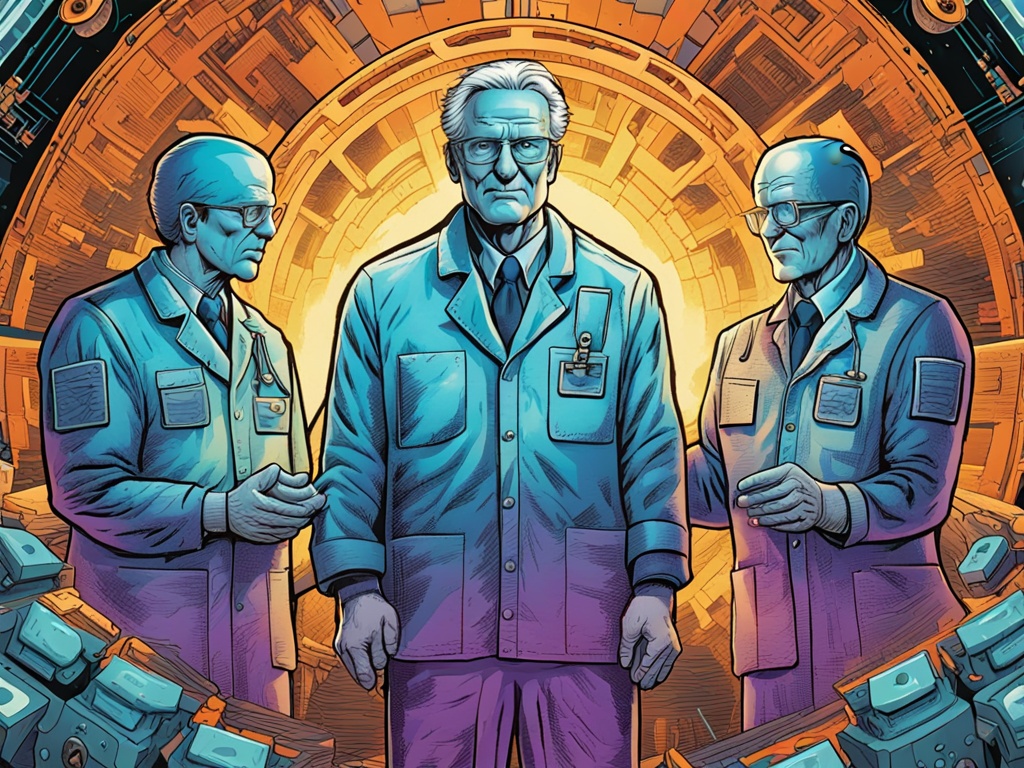Imagine This: The Next Big Breakthrough in Alzheimer’s Treatment—Is It Just Around the Corner?
Key Takeaways:
- Researchers in China are exploring new surgical methods for treating Alzheimer’s disease.
- The procedure reportedly shows promising early results, but more rigorous research is needed.
- The current landscape for Alzheimer’s treatments is bustling with ongoing studies and trials.
- Early intervention and a healthy lifestyle may be key in managing cognitive health.
Alright, let’s dive deep! You know, when we talk about Alzheimer’s disease and the search for a solid treatment or cure, it’s like trying to find a needle in a haystack while blindfolded. But recently, some researchers in China have stirred the pot with a surgical procedure aiming to tackle this beast directly. The idea here is pretty wild—they’re trying to manipulate the brain’s waste clearance systems. Imagine your brain’s like a city: just like a city needs a good waste management system to function smoothly, our brains need to clear out harmful proteins to stay in the game.
Now, these researchers have been trying this thing called "cervical shunting," which in essence, could help the brain flush out those pesky beta-amyloid and tau proteins faster than usual. They performed this on a patient who had already shown significant decline due to Alzheimer’s. After the operation, they noted cognitive improvements. Just five weeks post-surgery, some metrics showed that this patient’s cognitive function scores had improved—pretty neat, right?
The Rollercoaster of Hope and Caution
Okay, here’s where it gets trickier. While these initial results ring a bell of hope, let’s not jump the gun and scream “cure” from the rooftops just yet. The researchers have been clear that this is still in the early phases, and the ultimate goal of reversing any damage caused by Alzheimer’s is still a significant hurdle. As one expert pointed out, “once the cortex is damaged, it does not regenerate.” So, while this surgical approach is fascinating, it doesn’t undo the irreversible damage that the disease can do. Gotta keep our hopes in check, folks!
What’s Happening in the Bigger Picture?
Moving beyond that surgical leap, there’s also a flurry of activity happening in the clinical trial sphere right now—171 ongoing studies, in fact! It’s like a research party, but without the confetti. Many trials are focused on disease-modifying drugs, which is fantastic news. For instance, a drug named donanemab just got the green light and supposedly slowed cognitive decline by about 35%. For those who took it early on in their Alzheimer’s journey, that number jumped to a whopping 60%. That’s the kind of advancement that gets a room buzzing.
And let’s not forget about some of the other notable emerging treatments being tested. There’s ALZ-801, which could be the first oral medication aimed at modifying the disease, and Lecanemab, which has shown promise in clearing the bad proteins from the brain. They even have researchers looking into lifestyle changes, like diet and exercise, thanks to the U.S. POINTER Study, which is focused on brain health. It’s a mixed bag of possibilities, and honestly, it feels like a race against time for finding something that really works.
Stay Sharp—Practical Tips for Now
So, what’s a young investor or, honestly, anyone concerned about Alzheimer’s supposed to do with all this information?
- Stay Informed: Keep an eye on clinical trial results. There’s some cutting-edge stuff happening, and it could affect investment opportunities down the line.
- Healthy Lifestyle: Encourage loved ones to stay active and eat well. It might not be a cure, but good health overall may delay the onset or progression.
- Emotional Support: If you have family members worrying about cognitive decline, be there for them. Sometimes the best "treatment" is just emotional backing in uncertain times.
My Personal Insight
Honestly, even as a young crypto analyst trying to navigate the financial rollercoaster that crypto brings, I can’t help but feel a swell of hope with each new breakthrough in Alzheimer’s research. The more we learn, the closer we get to understanding this complex disease—and potentially overcoming it. It’s a bittersweet reality when you realize how slow the progress can be, but it’s those small victories that can change lives.
So, before I wrap up, I want you to ask yourself: If the breakthroughs continue at this pace, how will we redefine what it means to age? How do we balance holding onto hope and keeping realistic expectations?
Let’s think about it together.





 By
By
 By
By
 By
By

 By
By
 By
By